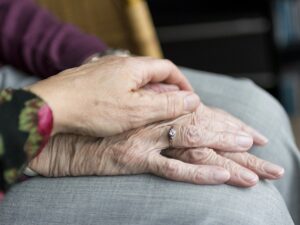When a loved one is diagnosed with dementia or Alzheimer’s disease, one of the first questions family members often ask is, “Can they continue to live alone?” The answer depends on the individual, the stage of dementia, and the support systems in place. While some older adults in the early stages of dementia can manage daily living tasks in their own home, it’s crucial to assess the well-being and safety of your loved one as the disease progresses.
Understanding the Stages of Dementia
Dementia is a progressive condition that affects memory, cognitive function, and the ability to perform daily tasks. In the early stages, individuals may experience mild memory loss, difficulty with complex tasks, and occasional disorientation. This stage is when many people continue to live independently with support from caregivers, family members, or in-home services like Meals on Wheels or personal care assistance.
However, as dementia progresses, the challenges increase. Day-to-day activities such as personal hygiene, managing medications, and preparing meals become more difficult. It’s crucial for healthcare providers, caregivers, and families to work together to develop a care plan that prioritizes safety and quality of life.
Risks of Living Alone with Dementia
Living alone can pose significant risks to someone with dementia. Cognitive impairment can lead to forgetfulness, leaving doors unlocked, forgetting to shut off appliances, or becoming vulnerable to scams. In addition, individuals may struggle with daily living activities, leading to poor nutrition, missed medications, and compromised personal hygiene. Social isolation can also negatively impact mental health, increasing the risk of depression and anxiety.
As dementia advances, safety becomes a major concern. Family members should consider whether their loved one can respond appropriately in emergencies, manage finances, and avoid potentially dangerous situations. It’s also essential to monitor whether your loved one is maintaining regular communication with family and friends through phone calls, whether they are remembering to charge and use smartphones, and if they can recognize and respond to familiar phone numbers.
The Role of Support Services and Memory Care
Support services like the Alzheimer’s Association, support groups, and helplines can provide valuable guidance for families and carers. Engaging with social services and healthcare providers can help coordinate care services and resources that allow individuals to remain in their own home for as long as safely possible.
For those requiring more comprehensive care, memory care communities like Parc Provence offer specialized dementia care that enhances quality of life. These communities support people and meet the unique needs of individuals with Alzheimer’s and other forms of dementia, providing structured support, social engagement, and 24/7 care from trained professionals. Assisted living and long-term care options also offer a safer alternative when living alone is no longer feasible.
Making the Decision: When to Transition to Assisted Living or Memory Care
Deciding when to move a loved one into a memory care or assisted living community is never easy. A diagnosis of dementia doesn’t immediately mean someone cannot live independently, but it does require careful planning and ongoing assessment. In-home care, personal care services, and technology solutions can help manage the early stages of dementia. However, as the disease progresses, safety, health, and well-being must take priority.
The decision should involve input from healthcare providers, family members, and the individual’s care team. Consulting with an elder care attorney about setting up a power of attorney and understanding Medicare coverage for care services can also be helpful.
Peace of Mind in a Community | Contact Parc Provence
Living alone with dementia is a complex and evolving situation that requires constant evaluation of the individual’s ability to manage day-to-day tasks safely. For many, transitioning to a specialized memory care community like Parc Provence offers peace of mind, improved safety, and a higher quality of life. By understanding the stages of dementia and utilizing available resources, families can make informed decisions that best support their loved one‘s needs and well-being.






